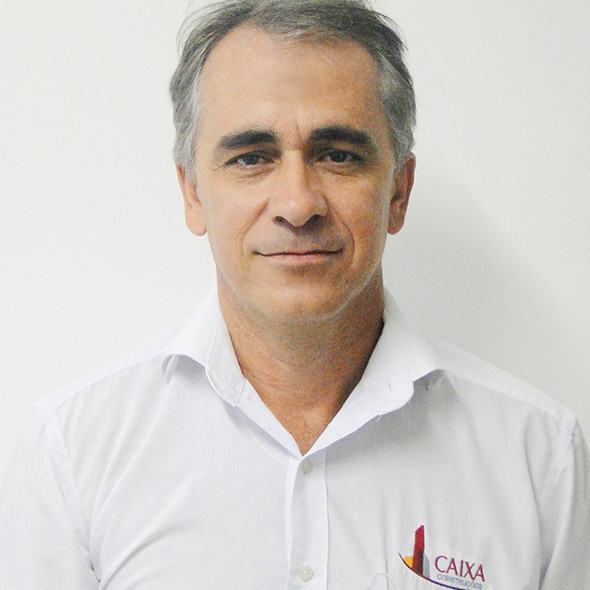Advancements in technical professionalization in the civil construction sector – Adeir Pinto, Technical Director of Caixa Construções
2014 has brought more opportunities for employment, business development and career progression through the professional training courses offered by the government of Brazil.

Mato Grosso, Brazil: 2014 has brought more opportunities for employment, business development and career progression through the professional training courses offered by the government of Brazil.
Technical courses stand out in this scheme particularly with the Sisutec (System of Unified Selection for Professional and Technological Selection) programs. These programs created by the Federal Government with the aim of increasing the number of professional and technological courses available, have seen public and private professional and technological higher education institutions offer free places for candidates from Enem and Pronatec (National Program for Access to Technical Education and Employment).
The courses are given by national professional and technological institutions, by schools pertaining to the Sistema S (Senai, Senac, Senat and Senar) and by state technological schools. The impact of the substantial increase in national technological schools was reflected not only in the increased access to technological education but also in the inland expansion of these schools.
In Brazil, there are 220 technical courses and 646 professional qualification courses. The most popular courses are in safety in the work place, IT, logistics and nursing.
In the first issue of this year, Sisutec recorded 527,730 registered students and more than a million applications, which represents 40% more registrations than the year before. Sisutec offers 291 thousand places on 122 technical courses. Whilst Pronatec has already received 6.1 million enrolments, 60% of which are from women.
Pronatec´s general coordinator Nilva Schröeder, recently spoke in support of the progress made by the different education and training bodies with the aim of increasing the number of courses and places offered in professional technology training. According to Ms Schröeder, the goal is to offer 8 million places by the end of the year in federal institutions, in the state public network and in distance learning programs.
In Brazil, there are 220 technical courses and 646 professional qualification courses. The most popular courses are in safety in the work place, IT, logistics and nursing. Civil construction features as one of the most dynamic fields in the country as it demands training and qualifications in order to meet the demands of the market.
A civil construction technician (highways or buildings) must complete a course on buildings and structures and/or other modules in that subject area, in professional training institutions and technical schools that are registered with the CREA. The courses last two years and prepare the professional to work in public and private civil construction companies, project offices and building sites, earning an average salary of between R$2,130.00 and R$6,150.00, according to the survey by CNI which covered 18 states in 2012.
The course activities, carried out in partnership with civil engineers, electricians and surveyors include topographical surveying, budget and project control spreadsheets, follow-up of project execution, and ensuring necessary supplies and services for the correct development of a project. The technician can even develop and carry out projects, following the technical rules and specifications. They may also take potential projects to the competent bodies for approval, as well as work in the construction of large metallic structures for the naval industry or the industrial oil and gas sector, ensuring that they are working according to hygiene, health and safety in the workplace regulations to avoid accidents and guarantee the quality of the services provided.
The Civil Construction Industry Union for the State of São Paolo (SindusCon-SP) recently published a survey, which recorded an increase of 2.04% in employment in this sector countrywide, when comparing February 2014 with the same month the year before, when the sector employed 3.45 million people. When comparing with January of this year, the survey showed that employment figures for civil construction increased by 0.88%. Since the opening up of 30.8 thousand places, the number of employees in this sector went from 3.49 million to 3.53 million. In the two-month period compared to the same period of the year before, there was an increase of 1.85%.
The survey showed that the Central-West region showed the second largest increase in numbers of employees for this sector (1.4%) falling just behind the Southern region (1.82%). The Southeast region showed an increase of 0.88%, the Northeast showed 0.74% and the Northern region showed a drop of 1.31%.
However, the scenario is not so positive when you look at the significant lack of preparation of professionals in civil construction, whether it be a lack of basic knowledge or a lack of proper understanding of new technology and equipment. These incentives for professionals to develop qualities that go beyond mere physical force, contribute to avoiding problems in contracting qualified workforce and delays in project handover schedules.
In view of the constant improvement and follow-up of the advancements in professional training in the field of civil construction, Caixa Construções is launching Project Valoriza, which will help young people and women enter the civil construction sector.
The program will offer professional training in areas that are specific to the sector, such as ceramic tiling, wall cladding, carpentry and painting, with a view to receiving professional qualifications and work on construction sites.
Adeir Pinto
Technical Director – Caixa Construções
This press release has been issued by Caixa Construcoes (Mato Grosso).